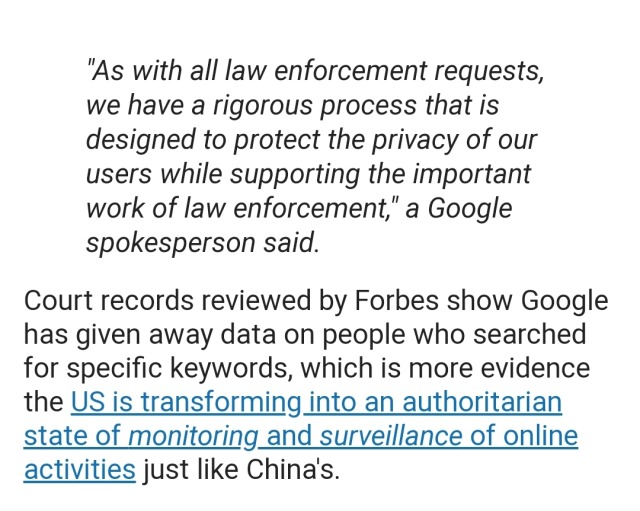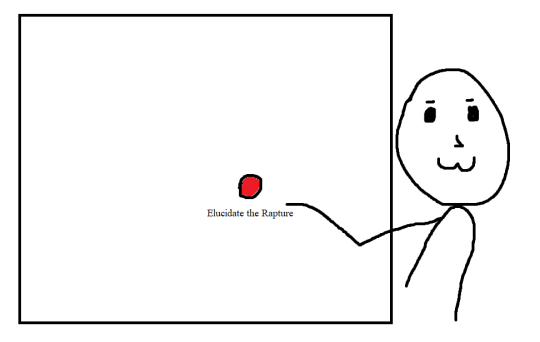https://www.pnas.org/content/118/33/e2026833118
Many small organisms produce ultrafast movements by storing elastic energy and mediating its storage and rapid release through a latching mechanism. The mantis shrimp in particular imparts extreme accelerations on rotating appendages to strike their prey. Biologists have hypothesized, but not tested, that there exists a geometric latching mechanism which mediates the actuation of the appendage. Inspired by the anatomy of the mantis shrimp striking appendage, we develop a centimeter-scale robot which emulates the linkage dynamics in the mantis shrimp and study how the underlying geometric latch is able to control rapid striking motions. Our physical and analytical models could also be extended to other behaviors such as throwing or jumping in which high power over short duration is required.
References
W. Gronenberg, Fast actions in small animals: Springs and click mechanisms. J. Comp. Physiol. A Neuroethol. Sens. Neural Behav. Physiol. 178, 727–734 (1996).CrossRefGoogle Scholar
A. Galantis, R. C. Woledge, The theoretical limits to the power output of a muscle-tendon complex with inertial and gravitational loads. Proc. Biol. Sci. 270, 1493–1498 (2003).CrossRefPubMedGoogle Scholar
S. N. Patek, D. M. Dudek, M. V. Rosario, From bouncy legs to poisoned arrows: Elastic movements in invertebrates. J. Exp. Biol. 214, 1973–1980 (2011).Abstract/FREE Full TextGoogle Scholar
M. Mark Ilton et al., The principles of cascading power limits in small, fast biological and engineered systems. Science 360, eaao1082 (2018).Google Scholar
S. J. Longo et al., Beyond power amplification: Latch-mediated spring actuation is an emerging framework for the study of diverse elastic systems. J. Exp. Biol. 222, 1–10 (2019).CrossRefGoogle Scholar
S. Vogel, Living in a physical world II. The bio-ballistics of small projectiles. J. Biosci. 30, 167–175 (2005).CrossRefPubMedGoogle Scholar
S. Vogel, Living in a physical world III. Getting up to speed. J. Biosci. 30, 303–312 (2005).CrossRefPubMedGoogle Scholar
A. Sakes et al., Shooting mechanisms in nature: A systematic review. PLoS One 11, e0158277 (2016).CrossRefPubMedGoogle Scholar
M. V. Rosario, G. P. Sutton, S. N. Patek, G. S. Sawicki, Muscle–spring dynamics in time-limited, elastic movements. Proc. R. Soc. B: Biol. Sci., 283, 20161561 (2016).CrossRefPubMedGoogle Scholar
S. M. Mark Ilton et al., The effect of size-scale on the kinematics of elastic energy release. Soft Matter 15, 9579–9586 (2019).Google Scholar
P. Gregory et al., Why do large animals never actuate their jumps with latch-mediated springs? Because they can jump higher without them. Integr. Comp. Biol. 59, 1609–1618 (2019).Google Scholar
O. Bolmin et al., Latching of the click beetle (Coleoptera: Elateridae) thoracic hinge enabled by the morphology and mechanics of conformal structures. J. Exp. Biol. 222, jeb196683 (2019).Abstract/FREE Full TextGoogle Scholar
S. Divi, X. Ma et al., Latch-based control of energy output in spring actuated systems. J. R. Soc. Interface 17, 20200070 (2020).Google Scholar
B. Webb, Using robots to model animals: A cricket test. Robot. Auton. Syst. 16, 117–134 (1995).CrossRefGoogle Scholar
K. Dianna et al., Addressing grand challenges in organismal biology: The need for synthesis. Bioscience 64, 1178–1187 (2014).CrossRefGoogle Scholar
D. L. Hu, M. Prakash, B. Chan, J. W. M. Bush, Water-walking devices. Exp. Fluids 43, 769–778 (2007).CrossRefGoogle Scholar
R. Altendorfer et al., Rhex: A biologically inspired hexapod runner. Auton. Robots 11, 207–213 (2001).CrossRefGoogle Scholar
F. Berlinger, J. Dusek, M. Gauci, R. Nagpal, Robust maneuverability of a miniature, low-cost underwater robot using multiple fin actuation. IEEE Robot. Autom. Lett. 3, 140–147 (2017).Google Scholar
M. J. McHenry et al., The comparative hydrodynamics of rapid rotation by predatory appendages. J. Exp. Biol. 219, 3399–3411 (2016).Abstract/FREE Full TextGoogle Scholar
S. N. Patek, W. L. Korff, R. L. Caldwell, Biomechanics: Deadly strike mechanism of a mantis shrimp. Nature 428, 819–820 (2004).CrossRefPubMedGoogle Scholar
S. N. Patek, R. L. Caldwell, Extreme impact and cavitation forces of a biological hammer: Strike forces of the peacock mantis shrimp Odontodactylus scyllarus. J. Exp. Biol. 208, 3655–3664 (2005).Abstract/FREE Full TextGoogle Scholar
R. L. Crane, S. M. Cox, S. A. Kisare, S. N. Patek, Smashing mantis shrimp strategically impact shells. J. Exp. Biol. 221, jeb176099 (2018).Abstract/FREE Full TextGoogle Scholar
T. I. Zack, T. Claverie, S. N. Patek, Elastic energy storage in the mantis shrimp’s fast predatory strike. J. Exp. Biol. 212, 4002–4009 (2009).Abstract/FREE Full TextGoogle Scholar
S. N. Patek, M. V. Rosario, J. R. A. Taylor, Comparative spring mechanics in mantis shrimp. J. Exp. Biol. 216, 1317–1329 (2013).Abstract/FREE Full TextGoogle Scholar
M. V. Rosario, S. N. Patek, Multilevel analysis of elastic morphology: The mantis shrimp’s spring. J. Morphol. 276, 1123–1135 (2015).CrossRefPubMedGoogle Scholar
M. Tadayon, S. Amini, A. Masic, A. Miserez, The mantis shrimp saddle: A biological spring combining stiffness and flexibility. Adv. Funct. Mater. 25, 6437–6447 (2015).CrossRefGoogle Scholar
M. Tadayon, S. Amini, Z. Wang, A. Miserez, Biomechanical design of the mantis shrimp saddle: A biomineralized spring used for rapid raptorial strikes. iScience 8, 271–282 (2018).Google Scholar
S. N. Patek, B. N. Nowroozi, J. E. Baio, R. L. Caldwell, A. P. Summers, Linkage mechanics and power amplification of the mantis shrimp’s strike. J. Exp. Biol. 210, 3677–3688 (2007).Abstract/FREE Full TextGoogle Scholar
M. J. McHenry, T. Claverie, M. V. Rosario, S. N. Patek, Gearing for speed slows the predatory strike of a mantis shrimp. J. Exp. Biol. 215, 1231–1245 (2012).Abstract/FREE Full TextGoogle Scholar
M. Burrows, The mechanics and neural control of the prey capture strike in the mantid shrimps squilla and hemisquilla. Z. Vgl. Physiol. 62, 361–381 (1969).CrossRefGoogle Scholar
M. Burrows, G. Hoyle, Neuromuscular physiology of the strike mechanism of the mantis shrimp, hemisquilla. J. Exp. Zool. 179, 379–393 (1972).CrossRefGoogle Scholar
M. S. deVries, E. A. K. Murphy, S. N. Patek, Strike mechanics of an ambush predator: The spearing mantis shrimp. J. Exp. Biol. 215, 4374–4384 (2012).Abstract/FREE Full TextGoogle Scholar
K. Kagaya, S. N. Patek, Feed-forward motor control of ultrafast, ballistic movements. J. Exp. Biol. 219, 319–333 (2016).Abstract/FREE Full TextGoogle Scholar
S. N. Patek, The power of mantis shrimp strikes: Interdisciplinary impacts of an extreme cascade of energy release. Integr. Comp. Biol. 59, 1573–1585 (2019).CrossRefGoogle Scholar
S. M. Cox, D. Schmidt, Y. Modarres-Sadeghi, S. N. Patek, A physical model of the extreme mantis shrimp strike: Kinematics and cavitation of Ninjabot. Bioinspir. Biomim. 9, 016014 (2014).CrossRefPubMedGoogle Scholar
S. J. Longo, T. Goodearly, P. C. Wainwright. Extremely fast feeding strikes are powered by elastic recoil in a seahorse relative, the snipefish, Macroramphosus scolopax. Proc. R. Soc. B: Biol. Sci. 285, 20181078 (2018).CrossRefPubMedGoogle Scholar
D. Cofer, G. Cymbalyuk, W. J. Heitler, D. H. Edwards, Neuromechanical simulation of the locust jump. J. Exp. Biol. 213, 1060–1068 (2010).Abstract/FREE Full TextGoogle Scholar
T. Kaji, A. Anker, C. S. Wirkner, A. R. Palmer, Parallel saltational evolution of ultrafast movements in snapping shrimp claws. Curr. Biol. 28, 106–113.e4 (2018).CrossRefGoogle Scholar
S. N. Patek, S. J. Longo, Evolutionary biomechanics: The pathway to power in snapping shrimp. Curr. Biol. 28, R115–R117 (2018).CrossRefGoogle Scholar
J. A. C. Knowles, M. H. Lowenberg, S. A. Neild, B. Krauskopf, A bifurcation study to guide the design of a landing gear with a combined uplock/downlock mechanism. Proc. R. Soc. Math. Phys. Eng. Sci. 470, 20140332 (2014).Google Scholar
J. A. C. Knowles, B. Krauskopf, M. H. Lowenberg, Numerical continuation applied to landing gear mechanism analysis. J. Aircr. 48, 1254–1262 (2011).CrossRefGoogle Scholar
H. C. Bennet-Clark, E. C. A. Lucey, The jump of the flea: A study of the energetics and a model of the mechanism. J. Exp. Biol. 47, 59–67 (1967).Abstract/FREE Full TextGoogle Scholar
M. Noh, S.-W. Kim, S. An, J.-S. Koh, K.-J. Cho, Flea-inspired catapult mechanism for miniature jumping robots. IEEE Trans. Robot. 28, 1007–1018 (2012).Google Scholar
J.-S. Koh et al., Jumping on water: Surface tension–dominated jumping of water striders and robotic insects. Science 349, 517–521 (2015).Abstract/FREE Full TextGoogle Scholar
J.-S. Koh, J. Sun-pil, R. J. Wood, K.-J. Cho. “A jumping robotic insect based on a torque reversal catapult mechanism” in 2013 IEEE/RSJ International Conference on Intelligent Robots and Systems (IEEE, 2013), pp. 3796–3801.Google Scholar
P. S. L. Anderson, T. Claverie, S. N. Patek, Levers and linkages: Mechanical trade-offs in a power-amplified system. Evolution 68, 1919–1933 (2014).CrossRefPubMedGoogle Scholar
P. S. L. Anderson, S. N. Patek, Mechanical sensitivity reveals evolutionary dynamics of mechanical systems. Proc. R. Soc. B: Biol. Sci. 282, 20143088 (2015).CrossRefPubMedGoogle Scholar
Y. Hu, N. Nelson-Maney, P. S. L. Anderson, Common evolutionary trends underlie the four-bar linkage systems of sunfish and mantis shrimp. Evolution 71, 1397–1405 (2017).Google Scholar
M. M. Munoz, P. S. L. Anderson, S. N. Patek, Mechanical sensitivity and the dynamics of evolutionary rate shifts in biomechanical systems. Proc. R. Soc. B: Biol. Sci., 284, 20162325 (2017).CrossRefPubMedGoogle Scholar
M. Muller, Optimization principles applied to the mechanism of neurocranium levation and mouth bottom depression in bony fishes (halecostomi). J. Theor. Biol. 126, 343–368 (1987).CrossRefGoogle Scholar
M. W. Westneat, Feeding mechanics of teleost fishes (Labridae; Perciformes): A test of four-bar linkage models. J. Morphol. 205, 269–295 (1990).CrossRefGoogle Scholar
M. W. Westneat, Transmission of force and velocity in the feeding mechanisms of labrid fishes (teleostei, perciformes). Zoomorphology 114, 103–118 (1994).CrossRefGoogle Scholar
M. Burrows, O. Morris, Jumping and kicking in bush crickets. J. Exp. Biol. 206, 1035–1049 (2003).Abstract/FREE Full TextGoogle Scholar
T. J. Roberts, E. Azizi, Flexible mechanisms: The diverse roles of biological springs in vertebrate movement. J. Exp. Biol. 214, 353–361 (2011).Abstract/FREE Full TextGoogle Scholar
R. M. Murray, Z. Li, S. Sastry, A Mathematical Introduction to Robotic Manipulation (CRC Press, 2017).Google Scholar
J. P. Whitney, P. S. Sreetharan, K. Y. Ma, R. J. Wood, Pop-up book mems. J. Micromech. Microeng. 21, 115021 (2011).CrossRefPubMedGoogle Scholar
P. S. Sreetharan, J. P. Whitney, M. D. Strauss, R. J. Wood, Monolithic fabrication of millimeter-scale machines. J. Micromech. Microeng. 22, 055027 (2012).CrossRefGoogle Scholar
J. M. Birch, M. H. Dickinson, Spanwise flow and the attachment of the leading-edge vortex on insect wings. Nature 412, 729–733 (2001).CrossRefPubMedGoogle Scholar
C. Li, S. T. Hsieh, D. I. Goldman, Multi-functional foot use during running in the zebra-tailed lizard (Callisaurus draconoides). J. Exp. Biol. 215, 3293–3308 (2012).Abstract/FREE Full TextGoogle Scholar
D. P. Holmes, A. J. Crosby, Snapping surfaces. Adv. Mater. 19, 3589–3593 (2007).Google Scholar
H. C. Astley, T. J. Roberts, Evidence for a vertebrate catapult: Elastic energy storage in the plantaris tendon during frog jumping. Biol. Lett. 8, 386–389 (2012).CrossRefPubMedGoogle Scholar
H. C. Astley, T. J. Roberts, The mechanics of elastic loading and recoil in anuran jumping. J. Exp. Biol. 217, 4372–4378 (2014).Abstract/FREE Full TextGoogle Scholar
F. J. Larabee, A. V. Suarez, The evolution and functional morphology of trap-jaw ants (hymenoptera: Formicidae). Myrmecol. News 20, 25–36 (2014).Google Scholar
R. Ritzmann, Snapping behavior of the shrimp Alpheus californiensis. Science 181, 459–460 (1973).Abstract/FREE Full TextGoogle Scholar
E. R. Ritzmann, Mechanisms for the snapping behavior of two alpheid shrimp, Alpheus californiensis and Alpheus heterochelis. J. Comp. Physiol. 95, 217–236 (1974).Google Scholar
A. M. Olsen, A mobility-based classification of closed kinematic chains in biomechanics and implications for motor control. J. Exp. Biol. 222, jeb195735 (2019).Abstract/FREE Full TextGoogle Scholar
A. M. Olsen, A. L. Camp, E. L. Brainerd, The opercular mouth-opening mechanism of largemouth bass functions as a 3d four-bar linkage with three degrees of freedom. J. Exp. Biol. 220, 4612–4623 (2017).Abstract/FREE Full TextGoogle Scholar
N. J. Cowan et al., Feedback control as a framework for understanding tradeoffs in biology. Integr. Comp. Biol. 54, 223–237 (2014).CrossRefPubMedGoogle Scholar
J.-S. Koh, S.-P. Jung, M. Noh, S.-W. Kim, K.-J. Cho, “Flea inspired catapult mechanism with active energy storage and release for small scale jumping robot ” in 2013 IEEE International Conference on Robotics and Automation (IEEE, 2013), pp. 26–31.Google Scholar
G. P. Sutton, M. Burrows, Biomechanics of jumping in the flea. J. Exp. Biol. 214, 836–847 (2011).Abstract/FREE Full TextGoogle Scholar
T. Ayling, Guide to the Sea Fishes of New Zealand (William Collins Publishers Ltd, Auckland, New Zealand, 1982).Google Scholar
P. A. Green, S. N. Patek, Contests with deadly weapons: Telson sparring in mantis shrimp (Stomatopoda). Biol. Lett. 11, 20150558 (2015).CrossRefPubMedGoogle Scholar




























































































































































































































